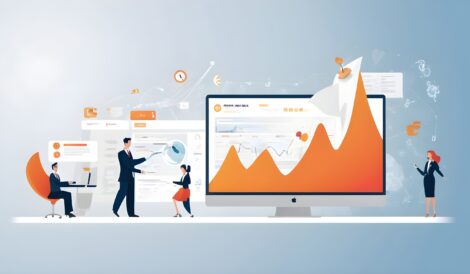In the realm of technology, there’s a concept that has captured the imagination of innovators, scientists, and dreamers alike: Artificial Intelligence (AI). It’s not merely a buzzword but a revolutionary force reshaping our world in ways we could scarcely imagine just a few decades ago. Let’s embark on a journey to unravel the mysteries and marvels of AI, exploring its significance, potential, and impact on society.
**Understanding Artificial Intelligence**
At its core, AI refers to the simulation of human intelligence processes by machines, especially computer systems. These processes include learning (the acquisition of information and rules for using the information), reasoning (using rules to reach approximate or definite conclusions), and self-correction. AI encompasses various subfields, including machine learning, natural language processing, computer vision, robotics, and more.

**Applications of Artificial Intelligence**
The applications of AI are boundless, permeating nearly every facet of our lives:
1. **Healthcare**: AI algorithms analyze medical data to assist in diagnosis, treatment planning, and personalized medicine. From detecting early signs of diseases to optimizing healthcare operations, AI is revolutionizing the healthcare industry.
2. **Finance**: AI powers algorithms for fraud detection, algorithmic trading, risk management, and customer service in the finance sector. It enables institutions to make data-driven decisions swiftly and accurately.
3. **Transportation**: Self-driving cars, guided by AI systems, promise safer and more efficient transportation. AI also optimizes traffic flow, predicts maintenance needs, and enhances logistics operations.
4. **Education**: AI-driven adaptive learning platforms cater to individual student needs, providing personalized learning experiences. Virtual tutors, educational games, and automated grading systems are transforming education worldwide.
5. **Entertainment**: AI algorithms recommend personalized content on streaming platforms, compose music, create art, and even write stories. The entertainment industry leverages AI to enhance user experiences and create innovative content.
**Ethical Considerations and Challenges**
Despite its transformative potential, AI raises ethical concerns and challenges:
1. **Bias**: AI systems can inherit and perpetuate biases present in the data used to train them, leading to unfair outcomes and discrimination.
2. **Privacy**: The proliferation of AI-powered surveillance technologies raises concerns about privacy infringement and data misuse.
3. **Job Displacement**: Automation driven by AI threatens traditional job roles, necessitating reskilling and upskilling of the workforce.
4. **Autonomy and Accountability**: As AI systems become more autonomous, questions arise about accountability and liability in case of errors or harm.
**Looking Ahead: The Future of Artificial Intelligence**
The journey of AI is just beginning, with boundless possibilities on the horizon:
1. **AI Ethics and Governance**: Addressing ethical concerns and establishing robust governance frameworks will be crucial for responsible AI deployment.
2. **AI-Augmented Creativity**: AI will collaborate with humans to unleash new realms of creativity, producing artworks, music, and literature beyond our current imagination.
3. **AI for Social Good**: Harnessing AI for social impact, such as addressing climate change, poverty, and healthcare disparities, will be a focus area for future developments.
4. **Human-AI Collaboration**: Emphasizing collaboration between humans and AI systems will unlock synergies and enable us to tackle complex challenges more effectively.
In conclusion, Artificial Intelligence is not just a technological advancement but a paradigm shift reshaping our societies, economies, and the very fabric of human existence. As we navigate the opportunities and challenges presented by AI, let’s ensure that our journey is guided by ethical principles, empathy, and a commitment to creating a better future for all.







